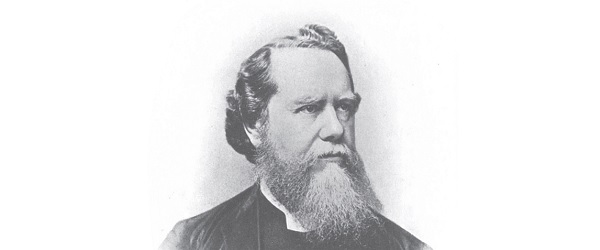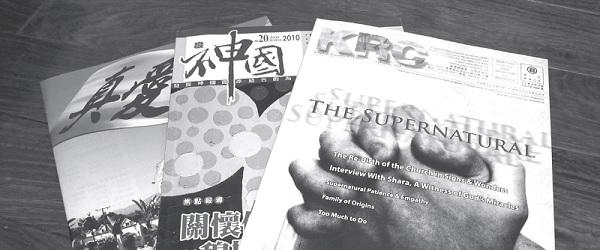Go against the wind
【Grace】1
Interview, photo provided/Yi Wei

There is an international, inter-denominational Chinese evangelical organization headquartered on the West Coast of the United States. Judging from the years since she was founded, she seems to be a young and energetic person, but judging from the qualifications and experience of the co-workers in charge, she seems to have decades of stability and skill.
This service organization engaged in social welfare has only a few paid staff at the headquarters, and TS is one of the staff in charge. However, with branches all over the United States and around the world, plus online ministry, a total of more than 60 professionals have been recruited as special co-workers, and there are nearly 40 writing, administrative, and promotion volunteers. She is like a A team of 100 people.
The colder it is, the more flowers bloom.
In 2008, when the U.S. subprime mortgage crisis broke out and the global economy declined, the donation income of most churches and evangelical institutions continued to decline. While victims were everywhere, she was not affected. It wasn't until 2009 that the number of regular donors who originally had large sums of more than $1,000 dropped sharply, and we began to feel the cold wind and cold. Fortunately, during Thanksgiving and Christmas, abundant donations poured in again, and we were able to break even. In 2010, the ministry expanded frequently, and the revenue and expenditure were actually balanced, which means that the donation did not decrease, but increased by more than 30%.
In this anxious and anxious environment, what makes them stand firm?
TS said: "It is a sense of crisis! The storm reminds devotees to support more faithfully and unremittingly; it urges us to serve more seriously and diligently."
Take the initiative to reduce expenditures
From the very beginning, the organization established clear and strict cost-saving principles─
1. Form an efficient and committed volunteer team and minimize the number of paid staff.TS believes that volunteers are the lifeblood of non-profit organizations, because personnel expenses are the most expensive expenditure for all organizations and churches. Not only that, TS recalled that when participating in various activities organized by the organization, many people witnessed the character and life of co-workers and felt their friendly fragrance, thus establishing feelings, identifying with the vision, affirming the value of the organization, and then committing themselves to volunteering. . Volunteers contribute money, effort, and time, becoming the most loyal partners. In this way, "progress here, save there", the results are considerable.
There are only a handful of paid co-workers at the headquarters. How easy is it to promote and organize numerous ministries that are both intellectual, spiritual and well-known? However, because of the support of a high-quality volunteer team, every paid staff member can focus on planning, leadership, and shepherding as much as possible without having to kick in everything. As for professional matters that ordinary volunteers cannot undertake, if they can be outsourced, then outsource them. There is no need to hire people to complete everything in your own office (in-house).
2. Encourage local branches to start from self-reliance and self-sufficiency.The Federation only provides teaching materials, lecturers, and strategic support, and each local branch will give full play to its own characteristics, and its administration and finance are completely independent. In this way, not only will the association not be overwhelmed by the huge demand for overseas "financial aid", but it will also continue to welcome like-minded people to join the big family.
3. Focus on distinctive ministries.Focus on the best and most distinctive ministries of staff in the organization, and never be greedy for too much. When someone asks for help or comes up with a ministry idea, as long as it is something that other organizations have done well, they must be referred to them, turning competition into cooperation and eliminating the huge burden of food and grass (funding) supply when the front line is infinitely stretched.
All-round fundraising
Raising funds is an art, and TS is happy to share his wise macro experience: “Raising funds is about raising friends, it is about winning like-minded partners (raising partners), and finally it is about pleasing God (please). God)!
Fundraising success does not depend on holding one or two lively fundraising dinners every year. Every course, activity, or ministry offered by an organization is an opportunity to win friends, partners, and willing devotees. Isn't it? Good friends are often the most faithful intercessors, the most uncomplaining co-workers, and the most generous supporters.
TS most admires a senior who leads a Chinese evangelical organization in North America. He praises him as a leader who understands this art. When those supporters who are "on call at any time" receive his fundraising call, they will say happily: "God sent an angel to bless me again!" Behind this, there are so many cycles of deep pastoral care and deep interaction of goodness!
TS once again emphasizes that when holding camps, conferences, seminars or any activities, every step and every thing done must show the characteristics and vision of the organization; be creative and forward-looking; and show kindness and warmth; to exert life influence so as to establish long-term relationships. For example, raising funds does not start from the moment you open your mouth or send a letter or send an email. Just like leading people to the Lord does not start from the moment you open your mouth and invite people to attend an evangelistic meeting. After all, ministries that have a life impact and can build a long-term sense of belonging are the number one tool for fundraising!
Hudson Taylor and Elijah
According to TS analysis, the fundraising methods adopted by Chinese churches and gospel organizations can be roughly divided into two types-

▲Talson Taylor’s fundraising model: Never borrow money or raise funds publicly, but pray and let God personally move people to fill needs.
Hudson Taylor model
The founder of China Inland Mission, Hudson Taylor (1832-1905), famously said: “God’s work is done in God’s way and never lacks God’s supply.”
Taylor relied on faith to serve according to God's call. When there is a financial gap, we will never borrow money or raise funds publicly, but pray and let God himself move people to fill the need.

▲Elijah’s fundraising model: Clearly and actively state your needs, and encourage others to respond with practical actions.
Elijah model
In the Old Testament era, when the prophet Elijah arrived in Zarephath in accordance with God's instructions, he saw a poor widow coming out to collect firewood. He went up to her and stated his needs clearly and actively: "Please bring me some. Can you drink some water?" "Can you bring me another piece of cake? I'm very hungry."
Famine was everywhere, and this sister had not had enough to eat for a long time. She expressed her embarrassment with embarrassment. “Do not be afraid,” Elijah encouraged her, noting that participating in his ministry would be a blessing from God. “God will take care of you and your sons, for the Lord says: ‘The meal from the altar will not diminish, nor will the jar be diminished. There will be no shortage of oil until the Lord sends rain on the earth.”
The woman went into the house, made a loaf of bread, ran out, and gave it to Elijah. And she declared with surprise that she had experienced God’s power, truth, and love (see 1 Kings 17:8-16).
TS said that both fundraising methods are beautiful and appropriate. In fact, there is no need to abandon one of them. On the contrary, they can be used in combination. “We can take the initiative to share our vision, ministry, mission and needs; at the same time We can also pray sincerely and ask God to bring us to people who are willing to respond, and to bring people to us who are willing to respond!”
TS believes that evaluating whether an organization’s ministry is effective? Is there any value in continuing to exist? Donation is by no means the only indicator. However, "sufficient donation income" can often concretely reflect the sound ecology of the organization. For this reason, TS suggests that if the contribution is insufficient, the organization should face up to the real challenges and reflect on the reasons for poverty.
‧Are the character models and life influence of the co-workers in charge strong enough?
‧Is the appeal for funding needs persuasive enough?
‧Do you provide ministry that is relevant to potential devotees and contributes to the church, community and family?
‧Is the ministry creative and forward-looking? Or is it just a truism and dispensable?
Effective creative management
From a practical point of view, TS pointed out that many organizations, both domestic and foreign, will launch a publication as a flagship. Through this showcase, they will display their characteristics and establish visibility and influence, thereby allowing their vision to be recognized and their readership to become the most important. Loyal devotee. TS described a journal of high quality and wide popularity as the organization’s most long-term, fixed and effective alternative “fundraising literature”.
For example, among the Chinese evangelical organizations in North America, the Kingdom of God magazine of the Kingdom Resources for Christ Association; the True Love family magazine of the True Love Family Association, as well as others such as Messenger, Overseas Campus, etc. , the gospel organization to which TS belongs is certainly no exception.

▲A high-quality journal can build visibility and influence, thereby allowing your vision to be recognized. It is a long-term, fixed, and effective alternative "fundraising literature."
There are tons of Christian books published in Hong Kong, Taiwan, and North America, especially those on marriage, family, and parent-child education, and they are extremely repetitive. In view of this, the organization of TS has been planning and launching a unique series of practical teaching materials since 2007 - exquisite and vivid manuals, additional course outlines, discussion topics, including CDs; suitable for self-study, as well as church groups, fellowships, and Sunday schools , reading discussion in book club. And these products are only "given" and not sold - they are only used as gifts for devotees. Readers’ families and churches need teaching materials, and institutions need donations. Isn’t this a win-win situation? If you run a study room, you can't just sell these few items, so you have to spend a lot of manpower and money to build up inventory and maintain operations, and the "added value" of the products will not be so high. According to TS's observation, the few institutions that have done this seem to have achieved quite fruitful results.
fundamental core principles
Finally, TS offered sincere advice. He admitted that due to the differences in the nature of the ministry, theological stance, and the personality of the staff in charge of each organization, there will of course be many different ways to raise funds. However, there are a few core principles that are universally applicable:
‧Be alert at all times and be a faithful and wise steward of God.Don't forget, even if you do nothing, you don't receive any donations; as long as the organization is open for a day, it keeps spending money - spending the money entrusted to you by God. Therefore, keep abreast of the financial status of the organization, often bring your needs before the throne of God for supplication, and honestly face the numbers to review and look forward. Being transparent about your finances and handling them according to biblical principles is a blessing from God.
‧Don’t just complain about what is lacking, but share what has been accomplished.In fact, there are still many people waiting to donate. When they allocate the amount of donation, they will always give priority to investing in meaningful and valuable ministries, and they are well-run ministries to ensure that their donations are given to loyal and responsible people. In the hands of knowledgeable stewards of the Kingdom of God.
‧The fundamental way to ensure financial stability of an organization:It lies in improving physical fitness, increasing revenue and reducing expenditure, and proper management.
Journalist profile
Yi Wei, writer. Care about community ecology and interaction, especially disabled and disadvantaged families.
